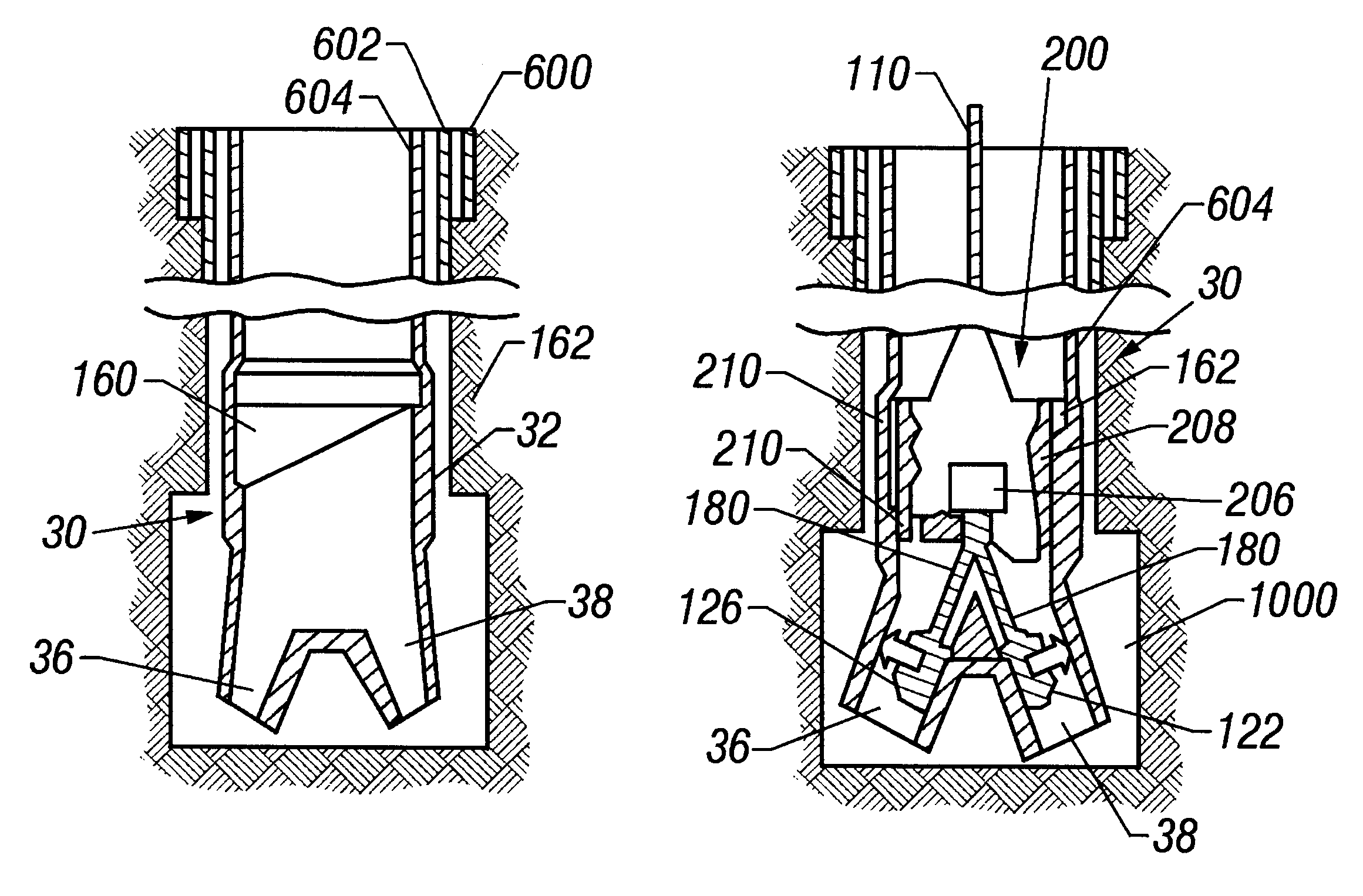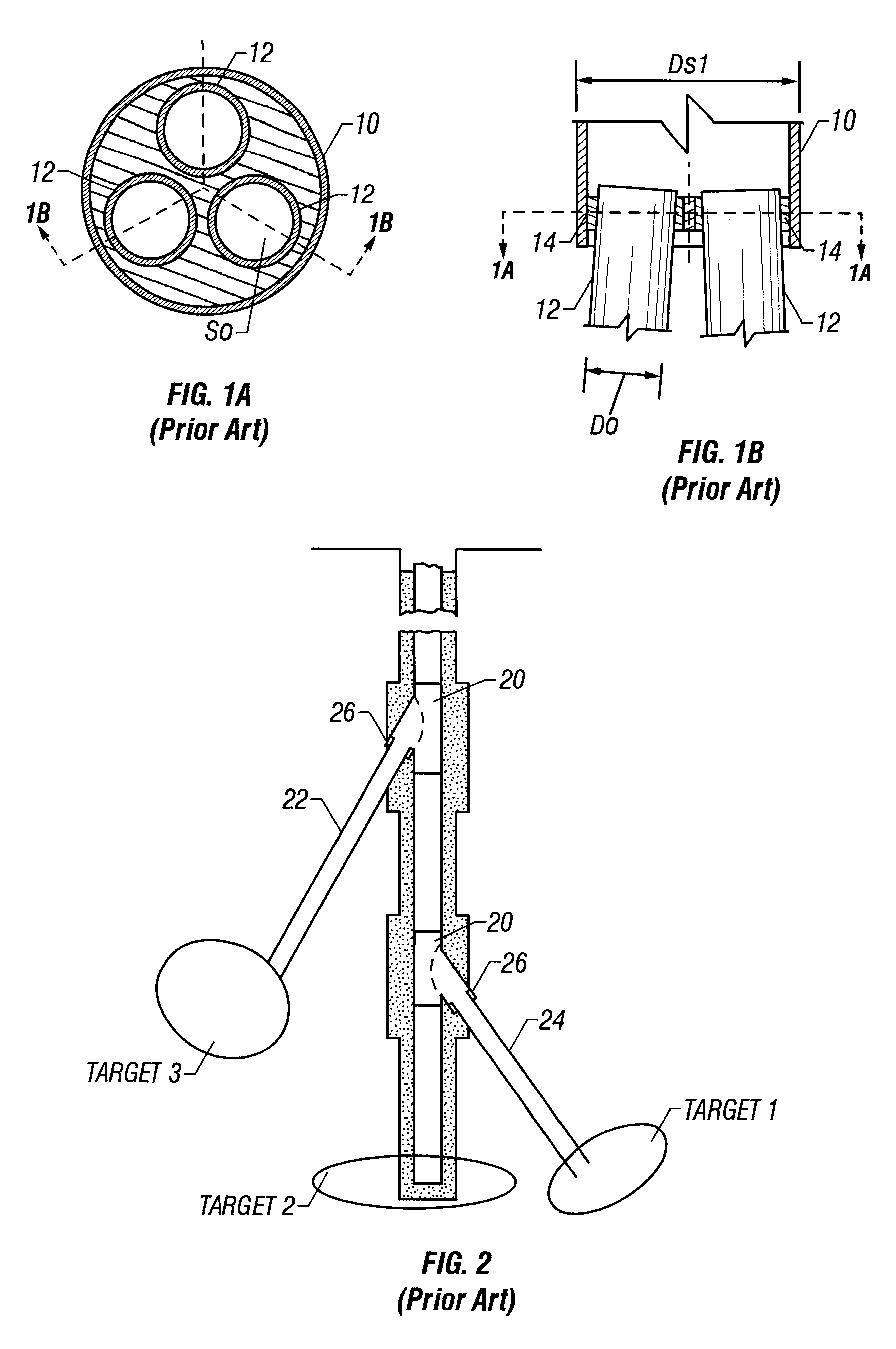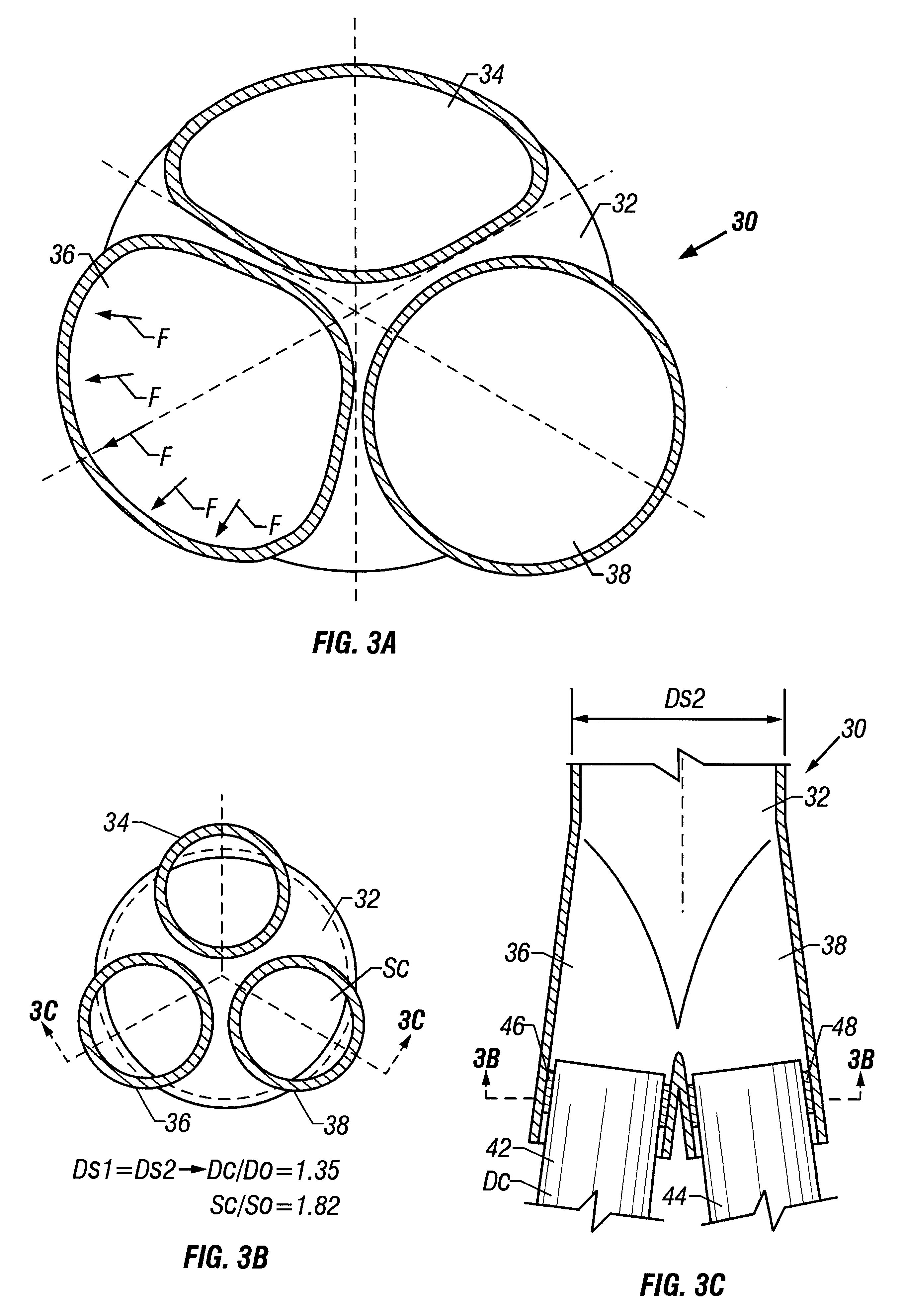Apparatus and method for establishing branch wells from a parent well
a technology of branch wells and parent wells, applied in the field of wells, can solve the problems of difficult sealing and inability to provide, and achieve the effect of avoiding the formation of a branch well
- Summary
- Abstract
- Description
- Claims
- Application Information
AI Technical Summary
Benefits of technology
Problems solved by technology
Method used
Image
Examples
experiment phase 1
Two casing sizes were selected: a first one, one meter long was 7 inch diameter casing with a wall thickness of 4.5 mm; the second was one meter long and was 7 inch diameter casing with a wall thickness of 8 mm. A hydraulic jack was designed for placement in a casing for expanding it. Each casing was successfully preformed into an elliptical shape, e.g., to simulate the shape of outlet member 34 in FIG. 3A and reformed into circular shape while using a circularizing forming head with the jack. Circularity, like that of outlet member 38 of FIG. 3A was achieved with plus or minus difference from perfect circularity of 2 mm.
experiment phase 2
Two, one meter long, 7 inch diameter, 23 pound casings were machined axially at an angle of 2.5 degrees. The two casings were joined together at their machined surfaces by electron beam (EB) welding. The joined casings were deformed to fit inside an 11 inch diameter. The welding at the junction of the two casinos and the casings themselves had no visible cracks. The maximum diameter was 10.7 inches; the minimum diameter was 10.5 inches.
a) Machinery
Before milling each casing at an angle of 2.5 degrees, a spacer was temporarily welded at its end to avoid possible deformation during machining. Next each casing was machined roughly and then finished to assure that each machined surface was coplanar with the other. The spacer welded at the end of the casing was machined at the same time.
b) Welding
The two machined casings were assembled together with a jig, pressed together and carefully positioned to maintain alignment of the machined surfaces. The assembly was then fixed by several tung...
experiment phase 3
A full length prototype with two 7 inch casings connected to a 95 / 8 inch casing was manufactured and pressure tested. Testing stopped at 27 bar because deformation was occurring without pressure variation.
a) Machining
Machining was performed in the same way as for the two previous junctions except that the length of the casings was 1.25 meters instead of 1 meter, and a groove was machined around the elliptical profile to enhance the EB welding process. Additionally, a blind hole was machined on the plane of the cut of each casing to install a pin between the two casings to provide better positioning. The upper adapter was machined out of a solid bar of steel on a numerically controlled milling machine to provide a continuous profile between the 7 inch casings, with a 2.5 degree angle, and the 95 / 8 inch casing. The adapter was machined to accept a plug. The inner diameter of the lower end of the 7 inch casings was machined to accept the expanding plugs.
b) Welding
The two machined casin...
PUM
 Login to View More
Login to View More Abstract
Description
Claims
Application Information
 Login to View More
Login to View More - R&D
- Intellectual Property
- Life Sciences
- Materials
- Tech Scout
- Unparalleled Data Quality
- Higher Quality Content
- 60% Fewer Hallucinations
Browse by: Latest US Patents, China's latest patents, Technical Efficacy Thesaurus, Application Domain, Technology Topic, Popular Technical Reports.
© 2025 PatSnap. All rights reserved.Legal|Privacy policy|Modern Slavery Act Transparency Statement|Sitemap|About US| Contact US: help@patsnap.com



